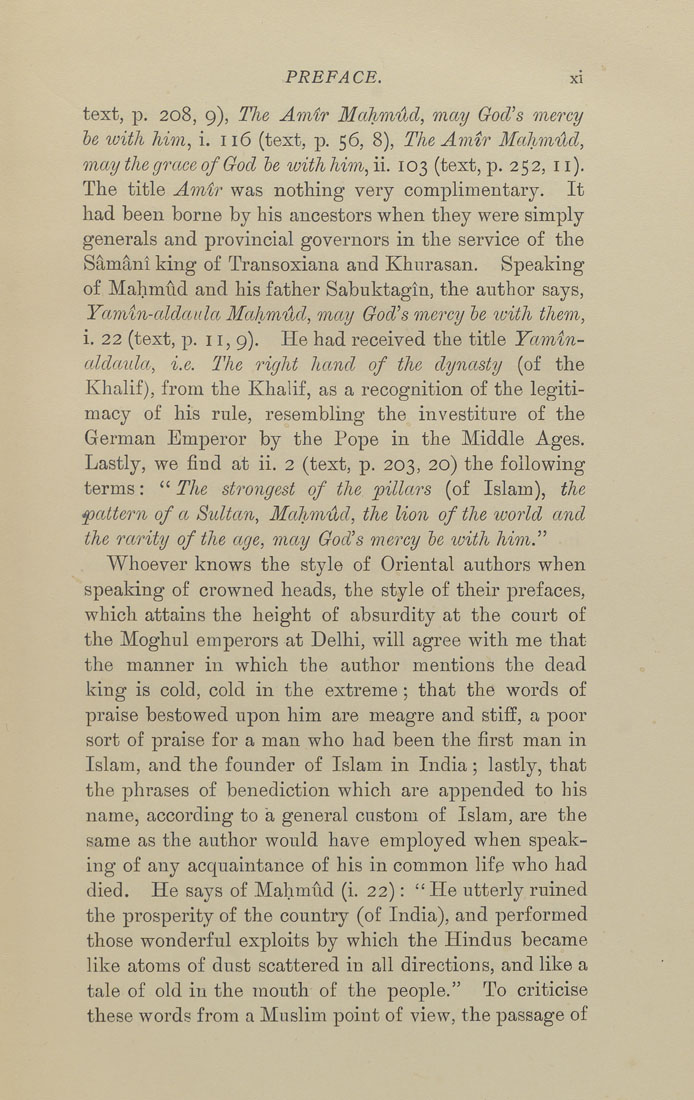PREFACE. xi
text, p. 208, 9), The Amir Mahmild, may God^s inercy
he with him., i. 116 (text, p. 56, 8), The Amir Mahmidd,
may the grace of God he with him, ii. 103 (text, p. 252, 11).
The title Amir was nothing very complimentary. It
had been borne by his ancestors when they were simply
generals and provincial governors in the service of the
Samani king of Transoxiana and Khurasan. Speaking
of Mahmud and his father Sabuktagin, the author says,
Yamin-aldaulcc MahmUd, may GoXs mercy he ivith them,
i. 22 (text, p. 11, 9). He had received the title Yamin-
aldaida, i.e. The right hand of the dynasty (of the
Khalif), from the Khalif, as a recognition of the legiti¬
macy of his rule, resembling the investiture of the
German Emperor by the Pope in the Middle Ages.
Lastly, we find at ii. 2 (text, p. 203, 20) the following
terms: " The strongest of the, pillars (of Islam), the
pattern of a Sidtccn, Mahmitd, the lion of the world and
the rarity of the age, may God's mercy he luith him."
Whoever knows the style of Oriental authors when
speaking of crowned heads, the style of their prefaces,
which attains the height of absurdity at the court of
the Moghul emperors at Delhi, will agree with me that
the manner in which the author mentions the dead
king is cold, cold in the extreme; that the words of
praise bestowed upon him are meagre and stiff, a poor
sort of praise for a man who had been the first man in
Islam, and the founder of Islam in India; lastly, that
the phrases of benediction which are appended to his
name, according to a general custom of Islam, are the
same as the author would have employed when speak¬
ing of any acquaintance of his in common life who had
died. He says of Mahmud (i. 22): "He utterly ruined
the prosperity of the country (of India), and performed
those wonderful exploits by which the Hindus became
like atoms of dust scattered in all directions, and like a
tale of old in the mouth of the people." To criticise
these words from a Muslim point of view, the passage of
|








